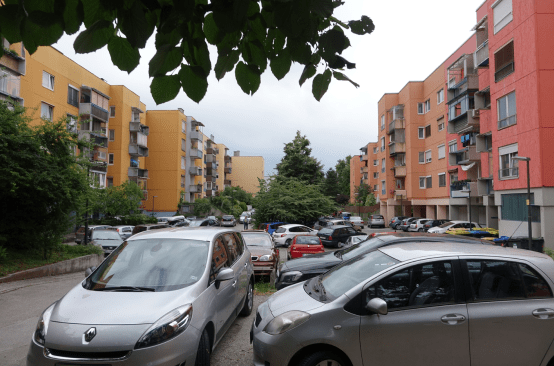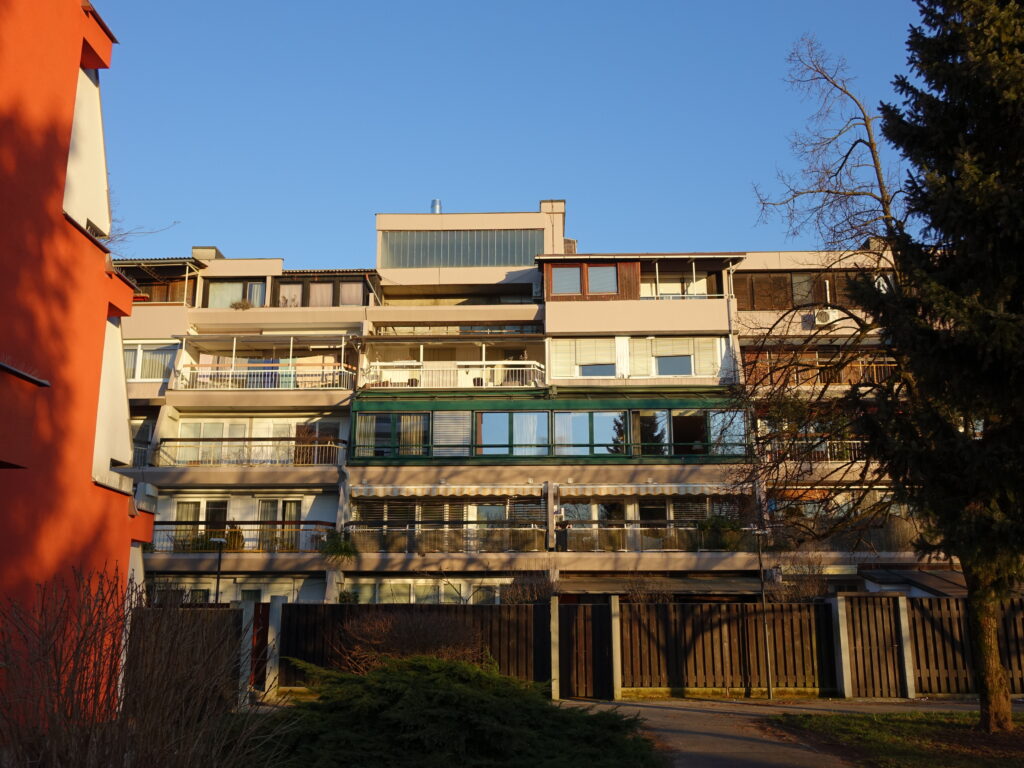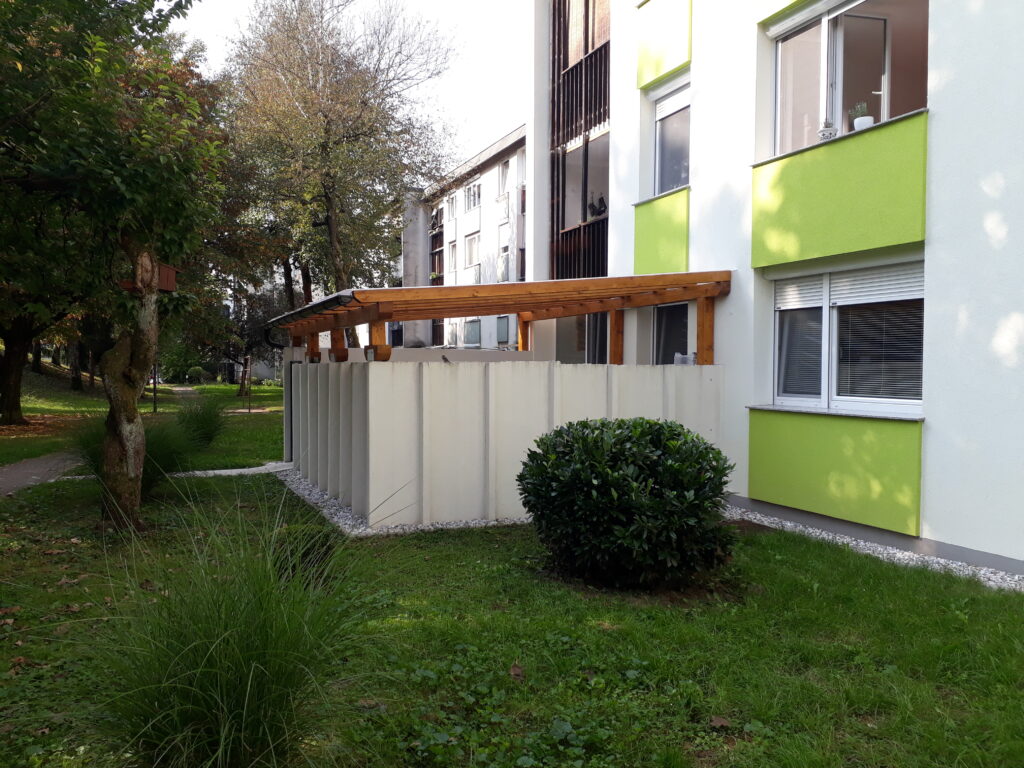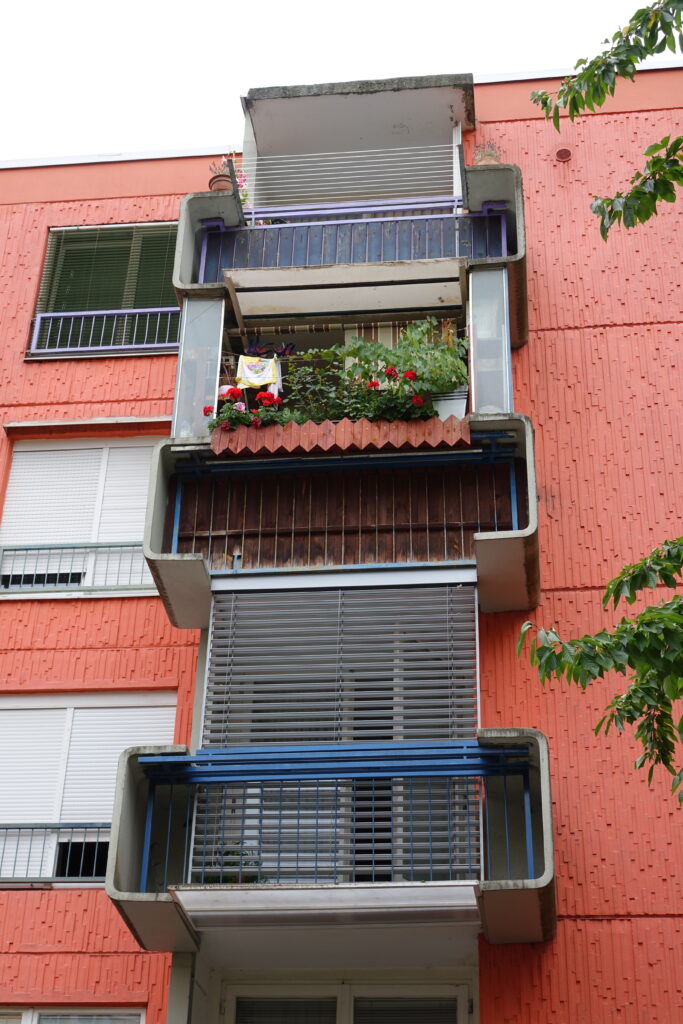PROBLEMS IN HOUSING ESTATES:
Traffic problems – lack of parking spaces
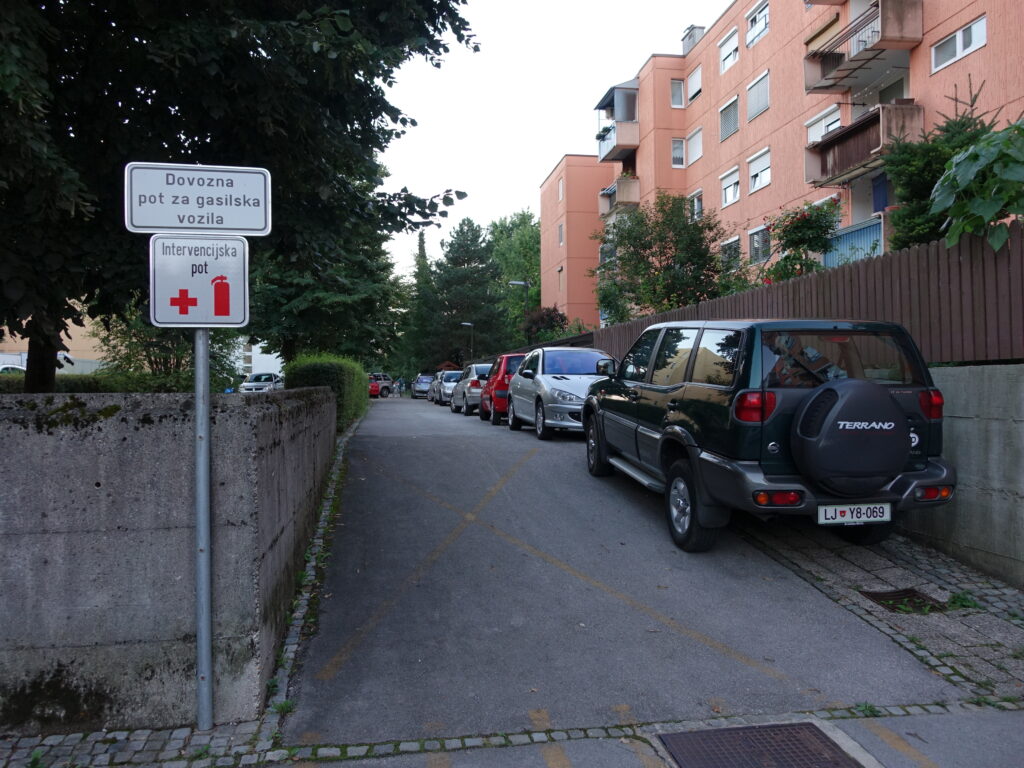
In the neighbourhoods, residents face a severe lack of parking spaces daily. In some, because the envisaged parking places were never built. In other cases, there was a substantial increase in the number of planned homes during the construction process, while the number of parking spaces remained as it was initially planned. Furthermore, today’s needs for parking places and, consequently, the norms for the design of parking lots, are considerably higher (min. 2 PP/app.) than they were during the construction of neighbourhoods (max. 1,5 PP/app.). As a result, rough-and-ready (provisional, improvised) parking solutions are present everywhere, on lawns, footpaths, playgrounds, and even on the emergency accesses.
Unclear property relations on public / common spaces
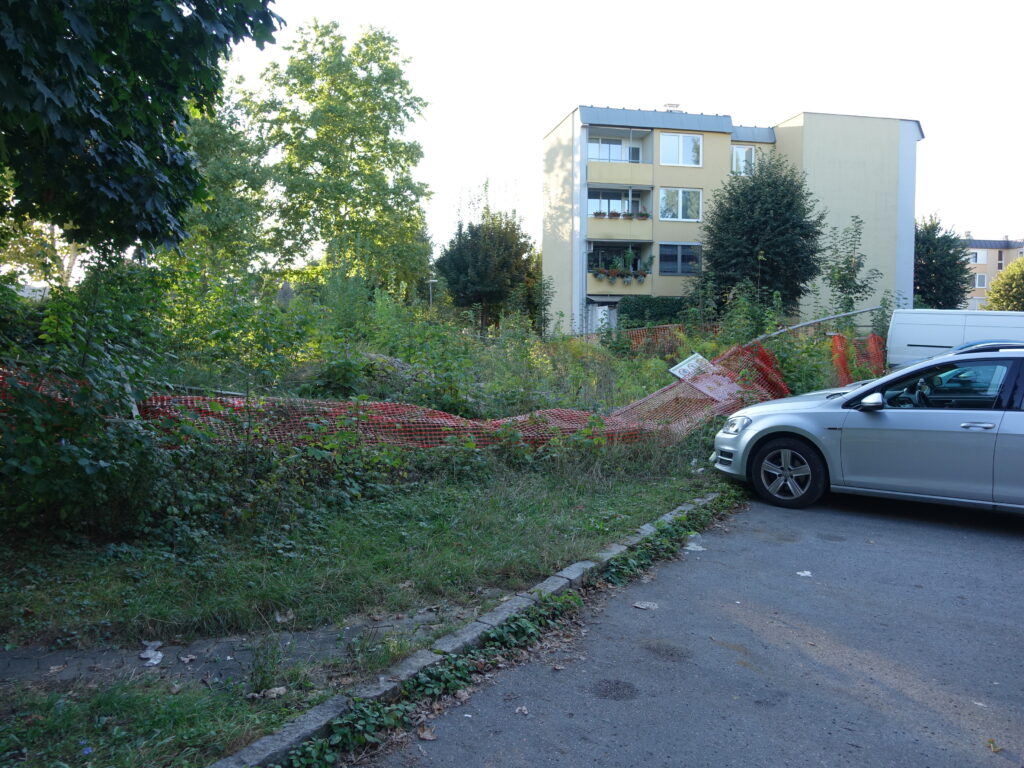
Other major issues include problematic and unfinished land policy procedures (non-legal processes on the public ownership) and, consequently, still unclear property relations on public/common open spaces, which prevents their proper maintenance and renovation). In some cases, procedures for determining ownership of public open spaces within neighborhoods are processed in courts according to the law from 2008 – Act Establishing Commonhold Tenure in Certain Buildings and Determining Commonhold Land (ZVEtL, zakon o vzpostavitvi etažne lastnine na določenih stavbah in o ugotavljanju pripadajočega zemljišča), but without considering project documentation and financial models from the time of construction and as well as professional principles of spatial planning. As a result, public spaces are fragmented and privatised. In some cases, large public spaces (green areas or parking areas of the neighbourhood) have become private property. And now the ambitions of the new owners are to build residential facilities for the market or parking garages on the places of green areas.
Significant alterations to the original urban and functional concept of a neighbourhood usually result in an inferior user experience of the space.
Energy efficiency refurbishment
Energy efficiency refurbishments are executed primarily in terms of heat insulation, often with a new choice of vivid facade colours, disregard the original colour schemes and design characteristics of the existing architecture.
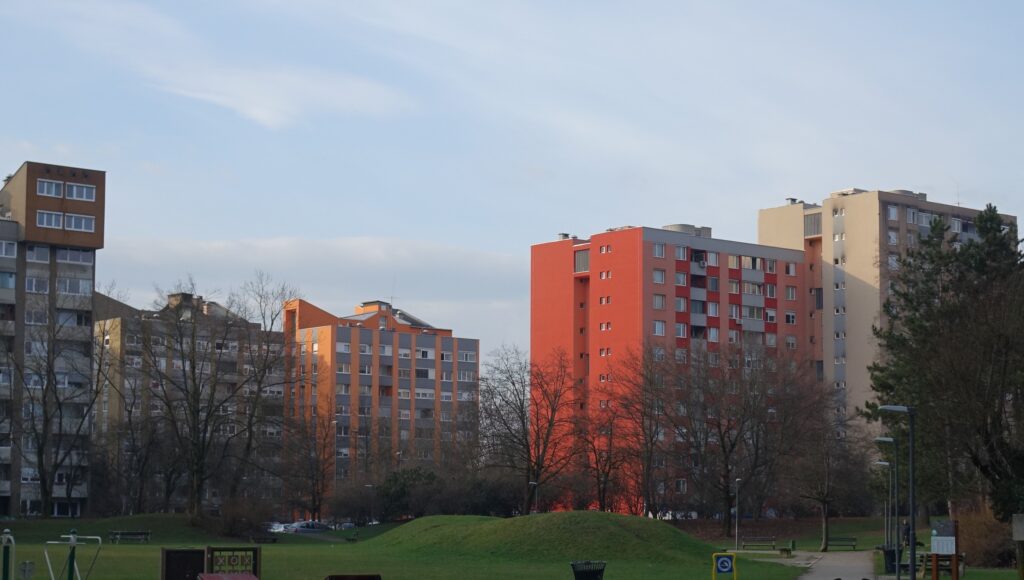
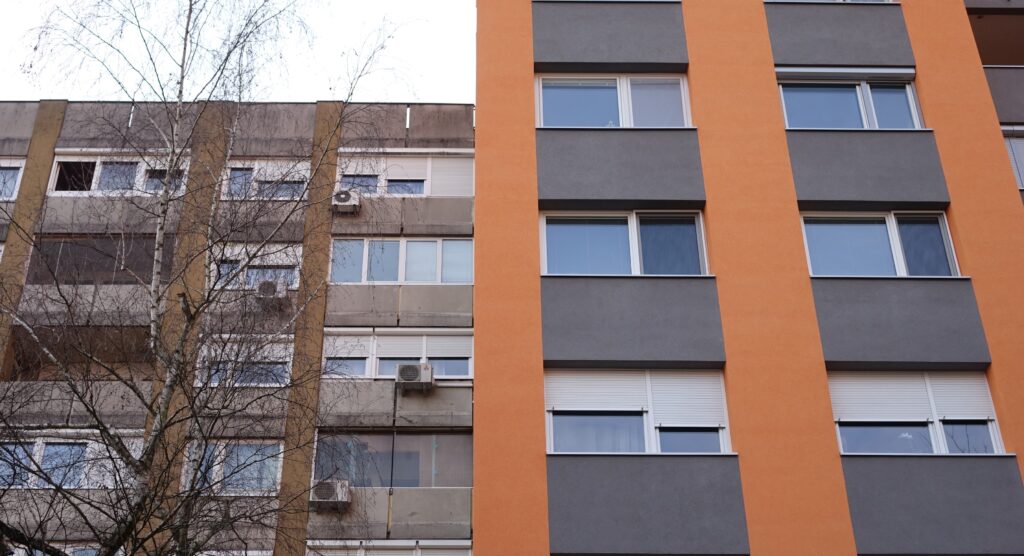
An energy-efficient renovation of multi-apartment buildings is a tremendous technological challenge, as well as an architectural and social challenge. Unique architectural, urban and cultural heritage can be preserved and quality upgraded or destroyed with extensive renovation. Unfortunately, in Slovene reality, in the case of energy renovations, the importance of preserving the legibility of original architecture is way too often completely ignored. New materials and components added are often different from the original substance or texture and, therefore, have a significant impact on the overall image of the building.
Uncoordinated individual interventions
Individual homeowners pursue their interests and meet their wishes and needs with the uncoordinated interventions on the building’s exterior (individual replacement of exterior fittings with new, more energy-efficient ones (mostly deviating from the original in material, colour and opening style), or the glazing of balconies, and awning modifications), as a rule, without any respect for the original architectural design. The visual appearance of the buildings is spoiled, architectural authenticity is threatened, and the entire neighbourhoods are being transformed into unrecognisable complexes.
Any kind of arbitrary interventions in the building envelope constitute an encroachment into the common property (the facade or roof of multi-dwelling building). Nonetheless, this practice is widespread in Slovenia. Lack of inspection and especially the absence of any sanctions for violations of that type impart a sense of legality to such acts in Slovene society.
